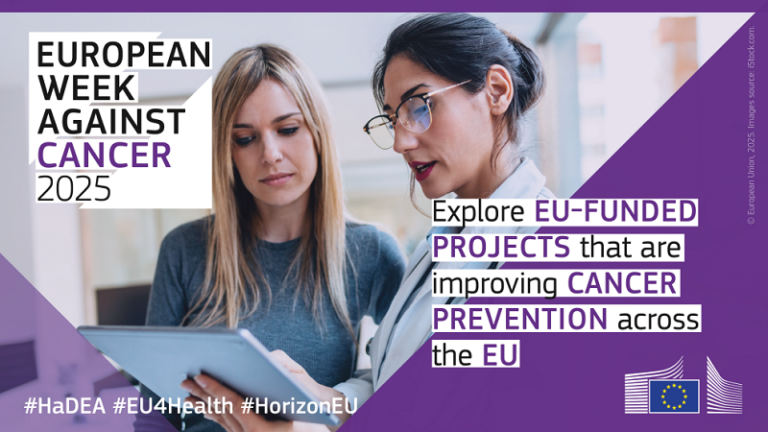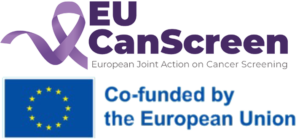HaDEA Presents Projects to Improve Cancer Prevention

Each year from May 25 to 31, the European Week Against Cancer unites cancer leagues, health advocates, civil society, policymakers, and patients to raise awareness about cancer prevention and care. In 2021, cancer was the leading cause of death for EU citizens under 65, according to Eurostat. Evidence from the International Agency for Research on Cancer (IARC) shows that 40% of cancer cases globally could be prevented through effective primary prevention.
Highlighted below are recent EU-funded initiatives making strides in cancer prevention:
EU4Health Initiatives
ReThinkHPVaccination:
Promoted HPV vaccination through personalized communication, training, and international collaboration.
Established a virtual knowledge center with resources for countries with low HPV vaccination rates.
Piloted training programs in Romania for healthcare professionals, community leaders, and policymakers.
Launched a communication campaign reaching over one million people via media channels.
PROTECT-EUROPE:
Identified key factors to improve HPV vaccine uptake through better communication strategies.
Delivered 10 masterclasses on HPV epidemiology and vaccination case studies.
Published 26 tailored recommendations to enhance trust, tackle vaccine hesitancy, and drive impactful public health campaigns.
BUMPER Project:
Supported the EU mobile app for cancer prevention, disseminating the European Code Against Cancer to diverse audiences.
Designed app content to cater to varying health literacy levels, connecting with marginalized groups.
EUROHELICAN:
Developed a ‘screen-and-treat’ strategy to combat Helicobacter pylori, a leading cause of gastric cancer.
Piloted programs in Slovenia and Latvia, demonstrating feasibility for broader implementation.
Produced IARC guidelines for H. pylori eradication programs.
Horizon Europe and Cancer Mission
4P-CAN Project:
Focused on addressing modifiable cancer risk factors by tackling policy barriers and encouraging healthy behaviors.
Expanded the Leresti Living Lab in Romania, initially targeting obesity, nutrition, and physical inactivity, to address smoking, alcohol use, radon, and UV exposure.
Scaled the model nationally and internationally, inspiring similar initiatives in Bulgaria.
Collaborative Progress
These projects reflect the EU’s commitment to cancer prevention through innovation, collaboration, and actionable solutions. Initiatives like these advance Europe’s Beating Cancer Plan, creating a healthier and more resilient future.
Learn More:
#EuCanScreen #CancerScreening #HealthCare #CancerPrevention #HaDEA #EU4Health #WeekAgainstCancer #HorizonEurope #HPVVaccination
🔗 Please don’t forget to Subscribe to EuCanScreen Newsletter! 💪
Subscribe to our newsletter to get news and updates.
Subscribe to our newsletter to get news and updates.

The general objective of EUCanScreen is to assure sustainable implementation of high-quality screening for breast, cervical and colorectal cancers, as well as implementation of the recently recommended screening programs – for lung, prostate and gastric cancers. EUCanScreen will facilitate the reduction of cancer burden and achieving equity across the EU.
This project has received funding from the European Union’s EU4HEALTH Programme under the Grant Agreement no 101162959

 https://hadea.ec.europa.eu/news/european-week-against-cancer-2025-eu-funded-projects-taking-action-prevent-cancer-2025-05-27_en
https://hadea.ec.europa.eu/news/european-week-against-cancer-2025-eu-funded-projects-taking-action-prevent-cancer-2025-05-27_en








